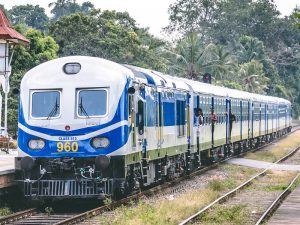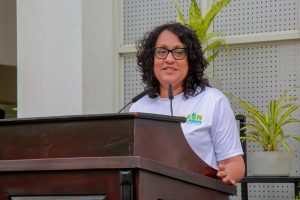Sri Lanka – A deep glance at Sex Workers in Sri Lanka

Colombo (Asia News) – Sex work in Sri Lanka has hitherto been perceived as a public health concern, with sex worker population estimates being extrapolated based on available data in the context of HIV and STI prevention. This public health approach does not provide adequate insight into the life experiences of sex workers in Sri Lanka. Any discussion on stigma and discrimination in public health contexts focus mainly on accessing testing and treatment services from government and non-government service providers.
The public health approach primarily views sex workers as vectors of HIV and other STIs. This is underpinned by the fact that it is a common practice for Sri Lankan magistrates to order a compulsory screening for sexually transmitted infections of sex workers arrested under the vagrancy and/or brothel’s ordinances. 70% of the workers who reported as having been arrested in this study, said that they were sent for STI tests.
According to the survey, Ashila Dandeniya the Director of Stand Up Movement Sri Lanka told Mojo News that, “this dehumanization of the sex worker using extra-legal measures that are not made essential or mandatory in law has led to sex workers being excluded and discriminated against. This exclusion extends to all spaces that are to ensure fundamental rights within and beyond the state such as those that address include women’s rights, trans and queer rights, and labour rights.”
According to the research, 125 workers have said they dream of a life without violence. Another 103 workers have said they dream of a life with social acceptance and respect.
This research attempts to further our understanding of the challenges Sri Lankan sex workers face in accessing education, welfare, health, and justice, and the violence sex workers face at work and at home.
Key findings of this research provide insight into how stigma, discrimination, and violence pervade every aspect of sex workers’ lives in Sri Lanka.
Law
Nearly 50% of the workers who were arrested, especially under the Vagrancy Ordinance, were forced, intimidated or manipulated into pleading guilty by either the Police or by their lawyer. Judges are complicit in this illegal practice as they are aware it happens and do not take any action. As a result of this common practice, 85% of those arrested have said that they have always plead guilty. Due to this practice a significant number of sex workers have criminal records which has an impact on future employment, including working overseas as migrant labour.
Health
66% of the workers who have visited the government STI clinics reported that they faced some form of verbal abuse. 66% reported that such verbal abuse included comments of their ‘character’, i.e. implying that they are immoral, sinful and ‘bad’ women. 35% received
suggestions from STI clinic staff that they engage in alternative professions based on the assumption that this profession is inherently bad and/or sinful. 83% of the workers said that they have never received contraceptives from the public health midwife and 76% of the workers said that a public health midwife has never visited their home. While 80% of the female workers had visited the government STI clinic, only 35% of cis-gendered women workers have visited the ‘Suwa Nari – Women’s wellness clinic ’ at the government hospital that focuses on overall wellbeing. 91% said that they always use condoms, and of the small number who said they have not worn condoms at work, 70% said it was because clients refused to wear a condom.
Social safety
Findings also show that sex workers struggle to access government social safety programs.
For example, 77% have never applied for the government Samurdhi benefit. This is primarily due to a combination of lack of necessary documentation and social discrimination of sex workers.
Of the small number who did apply and were denied Samurdhi, 56% stated it was because they did not perform sexual favours. This practice of sexual bribery is normalized by different state officials, including Police to Samurdhi officers. 25% were denied Samurdhi as they did not have access to a permanent address while 15% said they did not have other requisite documentation. 3% were denied it as they did not have a marriage certificate either because they chose to not get married or had not registered their marriage.
Education Out of 88% who attended school 18% have completed their Ordinary Level and only 6% have completed Advanced Level. 14% have dropped out of school in the 5th grade or below. The main reasons for this abysmal state of education among sex workers emerges as being poverty and social stigma.
Family responsibilities
60% of the workers are sole earning members of their family and 73% are the highest earning or primary earning member of their family. 69% workers showed that they have three or more dependents in the family. 72% said sex work is a job that they do which feeds their family when they were asked how they feel about their job. It is in this context that 45% of workers said their work is never safe while 23% say it is mostly unsafe. 66% stated that clients are responsible for them feeling unsafe, followed by 20% each citing hotel owners and law enforcement as responsible for them feeling unsafe. Law enforcement officers being perceived as dangers to personal safety and wellbeing is a significant concern, and data in this study, quantitative and qualitative, repeatedly is indicative of this, thereby suggesting that law enforcement officers need further training and sensitization to help protect the wellbeing of citizens who are also sex workers.
This research shows that social stigma around sex work has led to systemic discrimination, violence and dehumanisation of sex workers in Sri Lanka. It emphasises the need to acknowledge and accept sex work as legitimate work. That is the first step towards ensuring that sex workers enjoy equity, justice, and a personal and work life that is free from discrimination and violence. This research is an outcome and reflection of the ongoing work of sex workers and allies to strengthen the sex workers’ movements in Sri Lanka.
Accordingly, they present 08 broad Recommendations too, for the betterment of Sex Workers.
The survey was conducted via the KoboToolbox; a free and open source online survey tool designed for humanitarian settings. 25 peer researchers who were trained on using the tool, conducted 283 interviews. This data was supplemented by written submissions by a panel of experts [Retired Senior Deputy Inspector General of Sri Lanka Police – Priyantha Jayakody, Former commissioner of the Human Rights Commission – Ambika Satkunanathan, Attorney at Law working extensively on Fundamental Rights issues – Pulasthi Hewamanne, Former Country Director of UNAIDS – Dr. Dayanath Ranatunga, Clinical Psychologist and Associate Professor in Psychology, Department of Sociology, University of Colombo – Prof. Gameela Samarasinghe, and Researcher and Activist – Sarala Emmanuel.] who sat for a hearing of 30 selected respondents from across Sri Lanka.
Praja Diriya Padanama , Stand Up Movement Sri Lanka , SWASA North , Trans Equality Trust The Grassrooted Trust have supported to implement of this research.
END.









